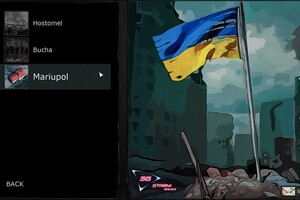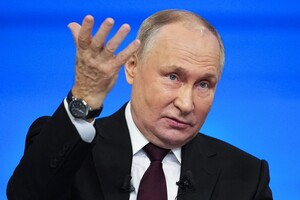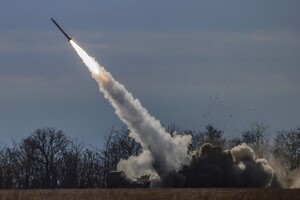Is the West Ready for Confrontation with Russia?
On January 16, Grant Shapps, British Sectetary of State for Defence, made a historic speech. The Lancaster House mansion in the heart of London became the place where a harsh but realistic assessment of the current situation in the world was given. It was here that Margaret Thatcher in 1989 expressed her optimistic hope that the global confrontation between the West and the East was coming to a close. However, the forecast of the former UK Prime Minister turned out to be generally wrong and limited in time.
As Grant Shapps put it, the era of peace has ended, ceding its place to the era of a pre-war world, which at any moment can become the era of a global war. The West must be ready for new challenges in order to contain the autocratic enemies that have raised their heads. And not only restrain, but also seize the initiative, standing up for its values around the world. Develop its own defense capabilities, strengthen cooperation and demonstrate leadership.
Everything said by the British politician is relevant and showcases a profound level of geopolitical analysis. However, it is currently not entirely clear whether the modern West is ready to respond to new threats appropriately and decisively. Is it capable of pursuing an active containment policy, as it used to do during the Cold War? Will Western political elites take Grant Shapps’ statements seriously? There are grounds for doubt. And substantial ones at that.
On March 5, 1946, in Fulton, the prominent British politician Winston Churchill gave an accurate assessment of the processes taking place in Europe after the defeat of the Third Reich. The USSR led by Stalin made no secret of its expansionist intentions and tried to expand its sphere of influence over the whole of Europe. The former head of the British government warned: to stop the advance of communism, it is necessary to join forces. After all, Russia understands and respects only the language of military force, aspiring to an unlimited spread of its power and ideology on the planet. This event is considered to be the beginning of the Cold War, which the West eventually managed to win. However, a few days before Churchill's historic speech, the deputy US ambassador to the USSR, George Kennan, sent a telegram to Washington, noting that cooperation with the Soviet Union was impossible and that the Kremlin understood only the language of force. These views formed the basis of the US containment policy.
On March 12, 1947, US President Harry Truman announced a foreign policy doctrine aimed at countering the spread of Soviet influence and providing assistance to the governments of Greece and Turkey, which were threatened by the rise of communist forces. The Truman Doctrine provided for constant pressure on the USSR and support for countries with a democratic form of government. In the same year, the United States offered the Western European countries a program of economic support, which was called the Marshall Plan. The condition for obtaining financial assistance was the exclusion of communists from the national governments. The Vandenberg Resolution, adopted by US Congress in June 1948, enshrined America's rejection of the policy of isolationism.
In 1948, the West did not retreat during the USSR-organized blockade of West Berlin. The goal of the Soviet Union was to disrupt the creation of a West German state. However, the blackmail failed. The blockade ended in May 1949. In the same year, NATO was established, whose main purpose was to protect the West against possible aggression from the communist camp. In 1950, the communist North Korean regime, with the support of the USSR and China, invaded South Korea. The United States deployed its troops to protect the government of the Republic of Korea. The peninsula became the scene of an unspoken military confrontation between the two blocs. As a result, bloody military operations ended with the division of Korea into two parts.
The Western ability to confront the communist bloc successfully was based on several factors. Western political elites of the time were aware of the level of danger posed by the USSR and its ideology. They had no illusions that the Soviet Union could be stopped by shallow declarations and expressions of deep concern. The leaders of the Western states repeatedly demonstrated their ability to act decisively and firmly within the framework of the containment doctrine, particularly with the use of military force. Communist proxies that existed in Western countries generally did not garner significant public support. Despite internal political differences, there was a unified position in Western democracies regarding the rejection of communist ideology. And it was not a matter of discussion and debate. After all, the West was showing confidence in its rightness. Much higher faith in its values, outlook and morality. In the fact that Western civilization, despite its certain shortcomings, was able to offer humanity the best alternative and lead to prosperity and a dignified life for as many nations and citizens as possible.
The current geopolitical situation and lay of the land in the countries of the conventional Western camp have significantly changed since the middle of the last century. Today, Western political elites do not demonstrate a sufficient level of unity in assessing global challenges. Grant Shapps’ speech could theoretically be an impetus that would force the West to reconsider its policy, throw off its numbness and start acting more decisively. But there are no guarantees that this will happen.
After World War II, the United States abandoned its policy of isolationism and took upon itself the honorable mission of leading the free world in its opposition to totalitarianism. But now Washington is not too willing to fulfill its role and from time to time shows nostalgia for the times when America was exclusively concerned with domestic problems. The lack of leadership and politicians capable of taking responsibility and initiative is one of the features of modern political elites in the West.
Russia's aggression, which began as early as 2008 with the invasion of Georgia and continued with the annexation of Crimea and the war in Ukraine, is caused, in particular, by the inability of the West to respond appropriately. The doctrine of active deterrence, which worked successfully earlier against the much more powerful and dangerous communist camp led by the USSR, turned out to be unpopular in the 21st century. Instead, the West returned to trying to appease the aggressor. Everyone has felt the weakening of the West's positions and the reduction of its determination to defend a world based on international law and justice. From Russia, Iran, China, North Korea to the Houthis, who carry out pirate raids and are not afraid to attack US and allied warships in the Red Sea.
In Western countries, there are many political forces of various spectrums that are connected to Russia in one way or another. This was the case during the existence of the socialist camp. The difference from the Cold War era is that these forces in some countries not only have strong political positions, but are even in power in some places. Or claim power. And they represent different political flanks — from the extreme left to the extreme right. Or they are just populists with a rather shaky system of views. Will they support a common line to contain the bloc of world autocracies? Would they rather try to understand with them?
In addition, the West has become seriously weakened ideologically. The values that enabled him to become successful and dominate the planet are no longer values for a large part of society. Educational institutions in America and Europe have become centers for the spread of various left-wing ideologies and serious indoctrination of youth. A 2007 study of the political beliefs of professors in the United States found that 18% of sociology professors consider themselves Marxists. According to a 2017 survey, a majority of American millennials would rather live in a "socialist, communist, or fascist country than a capitalist one." According to a 2022 Gallup poll, 51% of 18–29-year-olds in the United States, Canada, the UK and Australia approve of socialism.
The guilt complex of the white race for all planetary sins is actively imposed on Western societies. Culture wars, critical race theory, social justice scholarship, gender ideology, and aggressive attempts to rewrite history are tearing at the social fabric of Western civilization. In the US, The 1619 Project, a revisionist historiographical work that critically examines traditionally revered figures and events in American history, including the patriots of the American Revolution, the Founding Fathers, and later figures, such as Abraham Lincoln, has gained much publicity. The essence of the concept boils down to the fact that the main motive for the creation of the United States and the declaration of independence in 1776 was the preservation of slavery. And the entire American history is premised on systemic racism and oppression of various groups and minorities.
The industrial, scientific and technological capabilities of the states of the free world still far exceed the indicators of countries ruled by dictators and where authoritarianism prevails. But the West loses to them in determination and is not the player that shapes the agenda on the global stage. He prefers to respond to challenges, sometimes belatedly. Will the morally weakened Western civilization be able to successfully compete with dictatorships that do not feel any doubts or pangs of conscience on the way to achieving their own goals? Is it possible to win a new cold war if you don't believe too much in yourself and the values you defend?
Please select it with the mouse and press Ctrl+Enter or Submit a bug
















 Login with Google
Login with Google